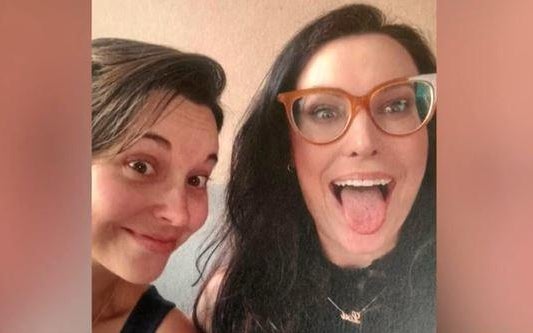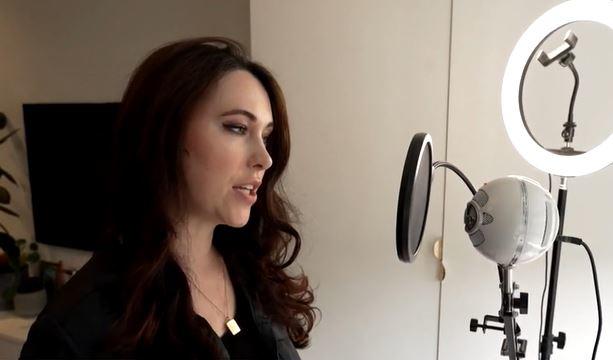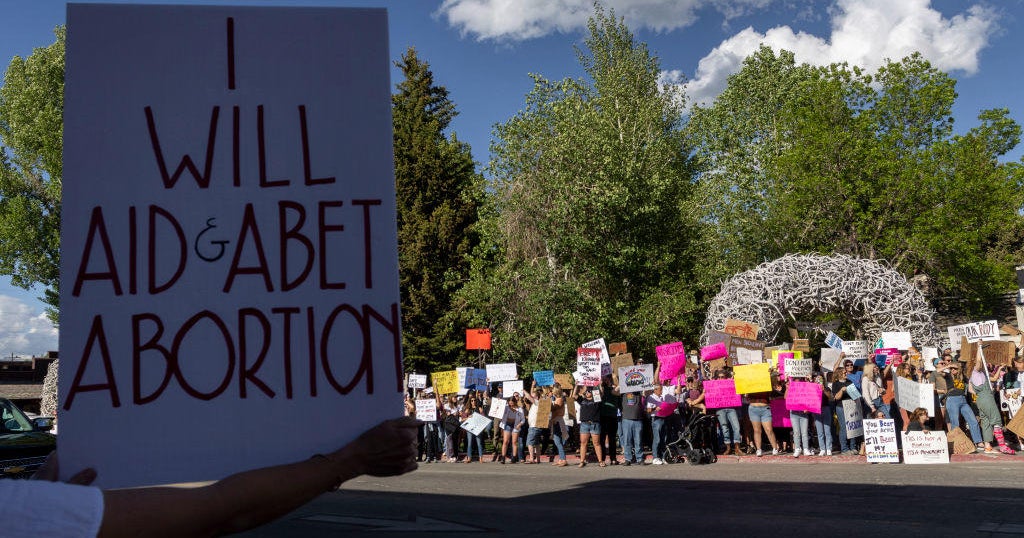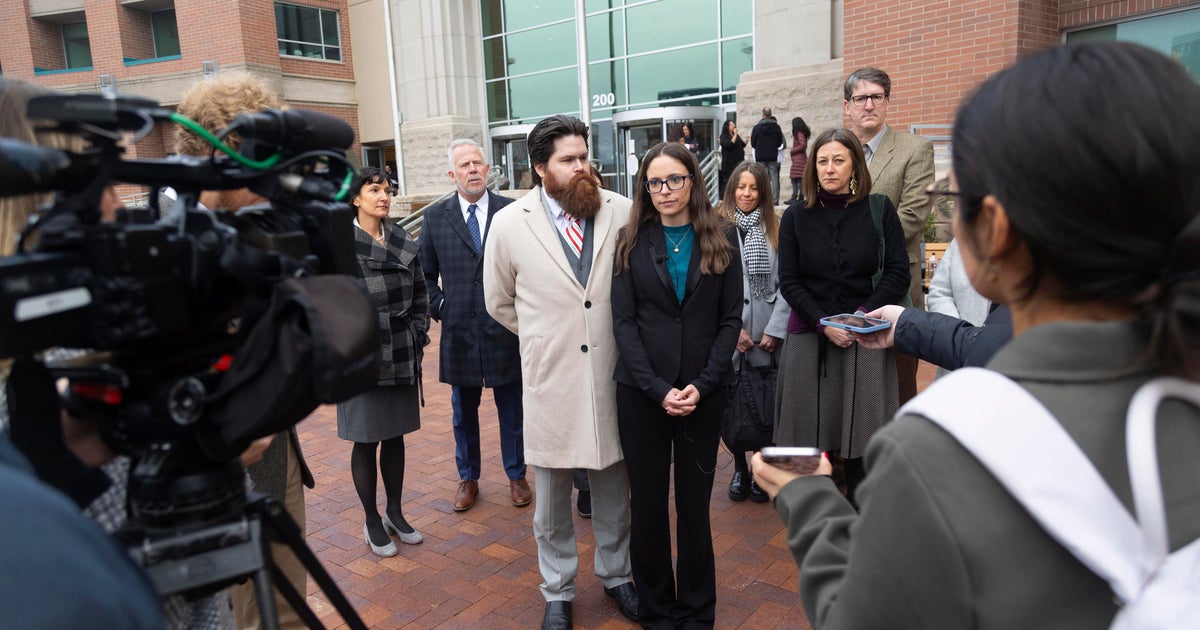CBS News
Serial sperm donors and lack of regulation create risks and leave children seeking answers
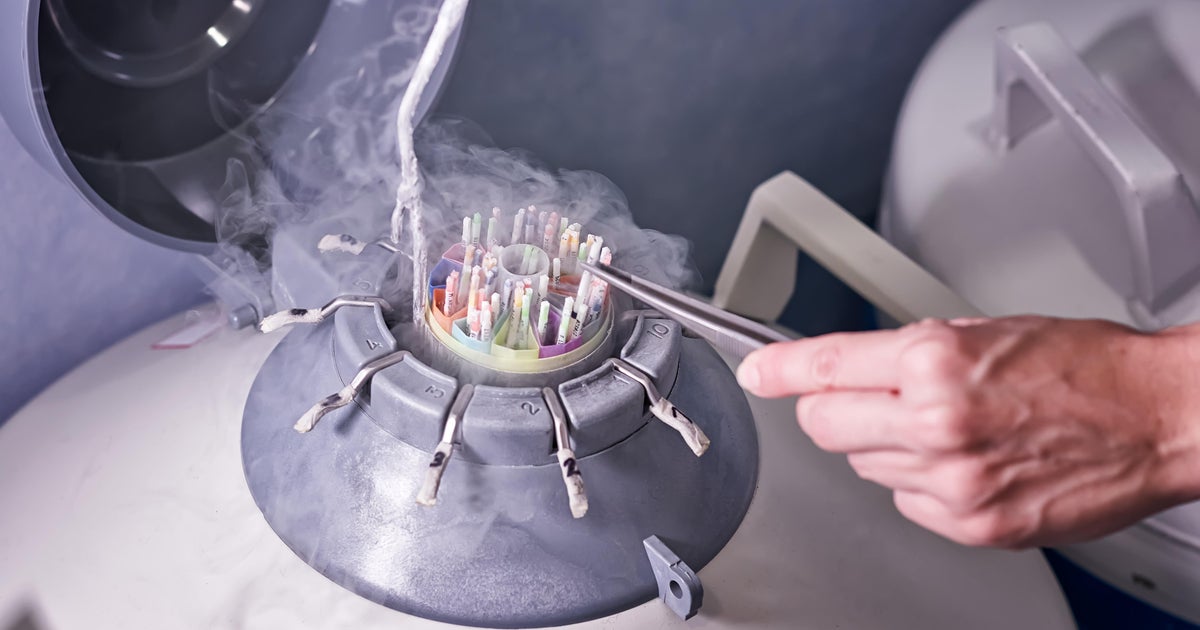
Louise Mcloughlin found out when she was 13 that she had been conceived by a sperm donor. She said when her parents told her, it “felt like the rug was just pulled from underneath my entire life.”
McLoughlin was raised in Dublin as an only child. When at-home genetic testing became available in 2006, she signed up, and she discovered that she had a half-sister. Not long after that, there was another match.
“I just went, oh my God. We found our biological dad,” she told CBS News. Within a few hours McLoughlin found a website belonging to her biological father and, later that same day, she called him.
Courtesy of Louise McLoughlin
“I know I’ve caught you off guard,” McLoughlin told the man on the other end of the phone line. “I have a million questions. You may have a million questions.”
Her biological father said the call came unexpectedly, but he did acknowledge donating sperm at a clinic in London years earlier. He said he thought the donation would remain anonymous, but he told McLoughlin that he welcomed her call.
“To hear this man say, ‘you’re very welcome,'” McLoughlin told CBS News, “I feel guilty, because I know that’s not the happy ending that everyone gets.”
McLoughlin now hosts a podcast called You Look Like Me, which explores the lives of donor-conceived people. Some have faced the discovery of hundreds of half-siblings.
CBS News
A recent Netflix documentary highlighted the case of one prolific sperm donor from the Netherlands, Jonathan Jacob Meijer, who has fathered hundreds of children. Some of his donations may have reached the United States.
Meijer told CBS News he believes he has about 550 children, but admitted it could be many more. The sperm banks he’s used do not need to inform him how many children have resulted from his donations.
In 2023, a court in the Netherlands banned a man, identified only as Jonathan M. under Dutch privacy laws, from donating any more sperm, saying he had fathered about 550 children. The court noted that under national guidelines, donors are allowed to produce a maximum of 25 children with 12 mothers, and the judge said the man had “deliberately lied about” the extent of his donations “to persuade the parents to take him as a donor.”
“Donor conceived people have been sounding the alarm on this for years,” McLoughlin said. “We are seeing men who are donating hundreds and thousands of times. They’re doing it in small areas. They’re doing it within the same kind of years. So you’re ending up with kids who are growing up knowing each other or meeting each other in later adulthood, which is just incredibly, incredibly dangerous.”
One of the dangers is that donor offspring can end up in incestuous relationships without knowing.
One Connecticut woman revealed last year that she unknowingly had a relationship with her half-brother in high school, saying her mother was a victim of fertility fraud having been inseminated by her doctor with his own sperm. More than 50 fertility doctors in the U.S. have been accused of using their own sperm to inseminate patients.
“We regulate gasoline more comprehensively, driving more comprehensively. And yet, here we’re actually creating lives,” Indiana Law Professor Jody Madeira said. She’s trying to get a law passed in Indiana that would make fertility fraud a felony.
Madeira said the U.S. was like the Wild West compared to European countries in terms of regulating sperm donations.
“If you think that something like, a guy with a thousand kids, donor conceived kids, is possible in Europe, then the chances are exponentially higher in the United States,” she told CBS News.
There are several known prolific sperm donors in America, including New Yorker Ari Nagal, who’s said he has 165 kids, and is still counting.
There are no national databases tracking sperm donations in America, nor is there a legal limit on how many donations a person can make. There is also no requirement for donors to disclose genetic medical conditions that could affect offspring.
Madeira said it is possible to regulate sperm donations, but “in the United States, our cultural orientation just prioritizes the market, and the industry, and the wishes of parents. Whereas in Europe, they prioritize the rights of donor conceived individuals.”
Louise McLoughlin said says the industry could improve, and she said if donor-conceived people cshould be part of the process.
“We are not babies. We have been able to contribute to this conversation for a really long time, and we actually haven’t been allowed a space… This journey of conception, this journey of fertility treatment, it does not end when you have a baby. It does not end when you conceive. It ends, you know, all the way in the future when your child is grown up into a person, and they — these are real world issues that they have to deal with.”
CBS News
New Jersey farmers struggle amid stubborn drought conditions

Chatsworth, New Jersey — At the age of 78, Stephen Lee III is facing an uncertain future.
Six generations of his family have farmed 135 acres of cranberry bogs in South Jersey.
“In farming, you don’t know what’s next,” Lee said.
In the last four months, it has only rained about three inches at the Lee Brothers Cranberry Farm — about a foot less than normal. Earlier this month, New Jersey declared a drought warning amid dry conditions that contributed to the spread of multiple wildfires in the state.
“The National Weather Service says this extreme drought in this part of South Jersey is a 150-year event,” Lee said.
And before temperatures dip to single digits, the cranberry bogs will have to be flooded to keep the fragile buds from drying out.
Typically, waterways feed into the Lees’ reservoir. But now it’s a surreal landscape, cracked and bone dry.
“It’s shocking,” Lee’s daughter Jennifer said. “And all you can do is kind of stare out and look at it.”
Jennifer says they turned to a backup well to pump water for their recent harvest. But even that well is 20 feet lower than normal.
“We’re lucky,” Jennifer explained. “There are some growers who don’t have a well and…they weren’t successful this year.”
Still, pumping the bogs with well water will cost nearly $30,000 in fuel this season.
And near the farm, a wildfire that started in July is still smoldering, fueled by the drought. It’s a threat that will keep Lee away from a Thanksgiving tradition of gathering with family in Maine.
“I’m going to stay here and smell for smoke and try to figure out if the cranberries are protected,” Lee said.
It’s the price of guarding next year’s crop and his family’s heritage.
CBS News
Has tipping in America reached a tipping point?

Poughkeepsie, New York — A controversial question facing customers at almost every cash register these days is whether they would like to leave a tip.
Many Americans think tipping has gotten out of control: Is it discretionary kindness or relentless obligation?
A November 2023 survey from the Pew Research Center found that 72% of people think tipping is expected in more places than it was five years ago. Some businesses that perhaps in the past were not known for asking for tips, such as drycleaners and hardware stores, now are.
Tipping is not just about percentages on a screen.
Dr. Paul Wright, senior vice president for the Neuroscience Institute with Nuvance Health in Poughkeepsie, New York, says that with tipping, the brain releases feel-good neurotransmitters like dopamine and oxytocin.
“Tipping is very similar to when you’re doing a good deed,” Wright explained. “…Many people do it for themselves, and not just for the recipient.”
But many Americans are not feeling that dopamine hit.
In a recent June 2023 survey from Bankrate, two-thirds of Americans now have a negative view of tipping, and one-third feel it’s “out of control.”
There’s also that pressure of the so-called “guilt trip tip.”
“Do I feel more obligated to tip when someone is looking at me with their big doe-eyes?” one woman at a coffee shop in Poughkeepsie told CBS News. “Probably.”
Others tip to right the wrong of wage inequality.
“People should be paid a living wage,” another coffee shop patron said. “People shouldn’t be dependent on the tipping system.”
Poughkeepsie restaurateur Russell Beck tried that.
“I think you should pay your people what they’re worth,” Beck said.
His “no tipping, please” wine bar, the 1915 Wine Cellar, began paying employees up to $30 an hour. But in wine there is a hard truth.
“Our accountant came back and said, ‘Listen, either you’re closing or you’re changing your pay model. There’s really no in-between,'” Beck said.
Beck believes he was naïve to think it could work. Now, with tips, both the bar and its employees have made more money.
Beck personally tips big. But he draws the line.
“It’s gotten crazy,” Beck said. “I ordered something online and I was asked if I wanted to tip the people that were going to be packaging the box. And I was like, excuse me?”
CBS News
Arizona executions to resume, breaking 2-year pause during review of state procedures
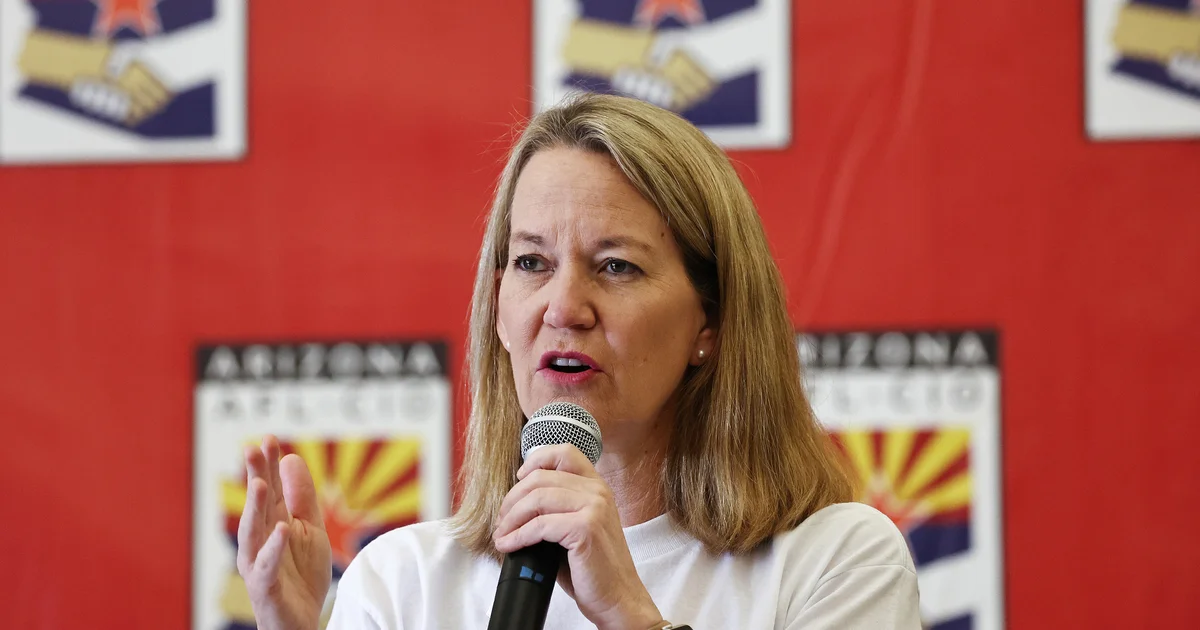
Executions will resume in Arizona following a two-year pause, the state’s top prosecutor says.
In a statement shared with CBS News on Wednesday, Arizona Attorney General Kris Mayes said that she will soon seek an execution warrant for Aaron Brian Gunches, who is on death row after being convicted of killing his girlfriend’s ex-husband.
“My office has been preparing since earlier this year to resume executions in Arizona,” Mayes said. “Back in May, I indicated that executions would resume by early 2025. In accordance with that timeline, I plan to move forward and request an execution warrant from the Arizona Supreme Court in the coming weeks for Aaron Brian Gunches, who was sentenced to death for the murder of Ted Price.”
Mayes said her office had been working with state corrections officials to review and improve death penalty procedures. “I am confident that executions can now proceed in compliance with state and federal law,” Mayes said in her statement.
Gov. Katie Hobbs had promised not to carry out any executions until there was confidence the state can do so without violating any laws. The attorney general’s office had said it would not seek a court order to carry out the death penalty while a review was underway.
The review Hobbs had ordered effectively ended this month when she dismissed the retired federal magistrate she had appointed earlier to head the review.
The governor’s spokesman, Christian Slater, said Hobbs “remains committed to upholding the law while ensuring justice is carried out in a way that’s transparent and humane.”
Corrections officials “conducted a thorough review of policies and procedures and made critical improvements to help ensure executions carried out by the State meet legal and constitutional standards,” Slater said.
Gunches had been set to be put to death in April 2023. But Hobbs’ office said the state wasn’t prepared to enforce the death penalty because it lacked staff with expertise to carry out executions,. At the time, it also said it could not find an IV team to carry out the lethal injection and didn’t have a contract with a pharmacist to compound the pentobarbital needed for an execution.
Gunches had pleaded guilty to a murder charge in the shooting death of Price, who was his girlfriend’s ex-husband, near the Phoenix suburb of Mesa.
Arizona last carried out three executions in 2022 following a nearly eight-year hiatus brought on by criticism of a 2014 execution and because of difficulties obtaining drugs for execution. In 2014, Joseph Wood was given 15 doses of a two-drug combination over two hours in an execution that his lawyers said was botched. Wood snorted repeatedly and gasped more than 600 times before he died.
The execution of Clarence Dixon, 66, in 2022 ended the nearly eight-year break. Dixon died by lethal injection at the state prison in Florence, Arizona, for his murder conviction in the killing of 21-year-old Arizona State University student Deana Bowdoin.


